|
Hey there, fellow dog people! Are you ready to hear about some of the most adorable and challenging creatures on the planet? That's right, we're talking about puppies!
Puppies are bundles of joy that bring love, laughter, and snuggles into our lives. But let's face it, they can also be a handful. From potty training to chewing everything in sight, raising a puppy is not for the faint of heart. But fear not, my friends! We've got some tips and tricks to get you started working on some common puppy issues. Potty Training Woes Ah, the joys of potty training. It's a necessary evil, but it doesn't have to be a complete nightmare. First things first, establish a routine. Take your pup outside at the same time and same place every day. Then treat and praise them when they go potty outside. Make sure to clean up any accidents inside with an enzymatic cleaner to eliminate the scent. Generally, how long a puppy can hold it depends on their developmental stage:
Chew on This Puppies are notorious for chewing everything in sight. Shoes, furniture, even walls – nothing is safe from their little teeth. The key to combatting this is to provide plenty of appropriate chew toys, and puppy proof your home (nothing on the ground that you don’t want them to chew) If you catch them in the act of chewing on something they shouldn't, redirect them to a chew toy and praise and/or treat them for chewing on that instead. Sleep Struggles Puppies need a lot of sleep, but getting them to actually sleep can be a challenge. To help your pup get into a routine, establish a bedtime and stick to it. Create a comfortable sleeping area for them with a cozy bed, and some toys to keep them occupied. Socialization is Key Socializing your puppy is crucial for their development. Introduce them to other dogs, people, and new environments. This will help them become well-adjusted and confident dogs. Socialization is gradually and safely introducing them to new people, places and things. Training Time Training your puppy is essential, but it can also be frustrating. Remember to be patient and consistent. Keep training sessions short and positive, and always end on a good note. Make it fun, games are the best way to train young dogs. Be aware that not all training works at every puppy stage. Puppy challenges can be tough, but they're worth it for the love and joy these little balls of fur bring into our lives. And with a little patience, consistency, and a whole lot of love, you and your pup can conquer anything together. That said, this is the time to get help if you are struggling. Happy puppy raising!
0 Comments
There is not much as heartwarming as watching them romp around and play. Today I watched as my pup and kitten wrestled. It was awesome, teeth and claws flashing, but no one was hurt, and happiness was obvious. For young animals play is a time of discovery, and exploration, and lots of fun. But have you ever stopped to wonder what's really going on when your furry friends are engaging in all that adorable playtime? Let's take a closer look at the world of puppy play!
First things first: what is puppy play? Playtime is an essential part of any puppy's development. It helps them learn vital social skills, develop coordination and physical strength, and, of course, it's just plain fun! Play can take many forms, from chasing each other around to wrestling to gentle tug-of-war games. The key is that it's all done in good fun and with respect for each other's boundaries. What does healthy puppy play look like? Healthy puppy play is characterized by relaxed body language, taking turns, and mutual enjoyment. You'll see lots of wagging tails, playful growling, and even some gentle play biting. Puppy play is also characterized by breaks in the action, where the pups pause to catch their breath or explore their surroundings before resuming play. If one puppy is getting a little too rough, the other will usually let them know with a play bow or by backing off. How can you encourage healthy puppy play? There are a few things you can do to encourage healthy puppy play. First and foremost, make sure you're supervising playtime at all times. Puppies can get carried away, and it's up to you to step in if things start to get too rough. You can also provide plenty of toys and games that encourage play, such as balls, tug ropes, and puzzle toys. Do make sure to be aware some dog may fight over toys. While they play nicely don't forget to give your pups plenty of love, treats and attention! What should you do if puppy play gets too rough? Even healthy puppy play can sometimes get a little too rough. If one puppy is growling, biting too hard, or otherwise making the other puppy uncomfortable, it's time to step in. You can redirect their attention by calling their name or offering a toy to play with instead. You can also use a long line to gently guide them apart and give them some space to cool off. Always remember to praise them for healthy behavior. In conclusion... Puppy play is an essential part of any puppy's development. It's a time of discovery, exploration, and lots of fun! By encouraging healthy puppy play and supervising playtime, you can help your furry friends develop vital social skills, physical strength, and coordination. If you have questions, or if your puppy is having difficulty with appropriate play, don’t wait,……get some help. Training and guidance now, will help prevent issues later. If you want to work with me, I offer three levels of service to choose from. I give lessons, provide follow up help you set goals, and coach you through a fun, easy training process. My focus is to offer your pup training that is most appropriate for them, so they can be a happy, healthy part of your family. I am obsessed with puppy behavior, and how to help our pups become the best and happiest they can be. If you are like me, and you've recently welcomed a furry bundle of joy into your home, you're likely wondering how best to help them be happy and healthy. Puppies, like humans, undergo a critical period of socialization that can greatly impact their behavior later in life. In this blog, we'll explore what the socialization period is and how you can make the most of it to help your puppy grow up to be a well-adjusted, friendly adult.
During the critical socialization period, which occurs between 3-14 weeks of age, puppies are particularly receptive to learning about their environment and developing relationships with other animals and humans. Socialization is important because it helps puppies learn how to interact with the world around them. Puppies who are well socialized are more likely to be confident and less fearful, making them better able to handle new situations and environments. Socialization also helps puppies develop appropriate behaviors, such as how to greet people politely and play nicely with other dogs. What is socialization? Socialization in puppies and dogs is the process of exposing them to a wide variety of experiences, people, animals, and environments in a positive and controlled way. The goal of socialization is to help puppies and dogs develop into well-adjusted, confident, and friendly adults who are comfortable in a variety of situations. The most important point is introducing them so that the experience is positive or at least neutral. It is not just the exposure, but is the happy response to whatever they are being exposed to. Effective socialization can include things like:
The socialization period is an important time in a puppy's life, and it's important to make the most of it. With patience, love, and positive reinforcement, you can help your puppy develop into a confident, well-adjusted adult dog. So, get out there and start socializing your pup today! For more information on how to socialize your pup, or what is typical puppy behavior set up a free 15-minute call with me at calendly.com/petamorphosis/15-minute-service-consultation. 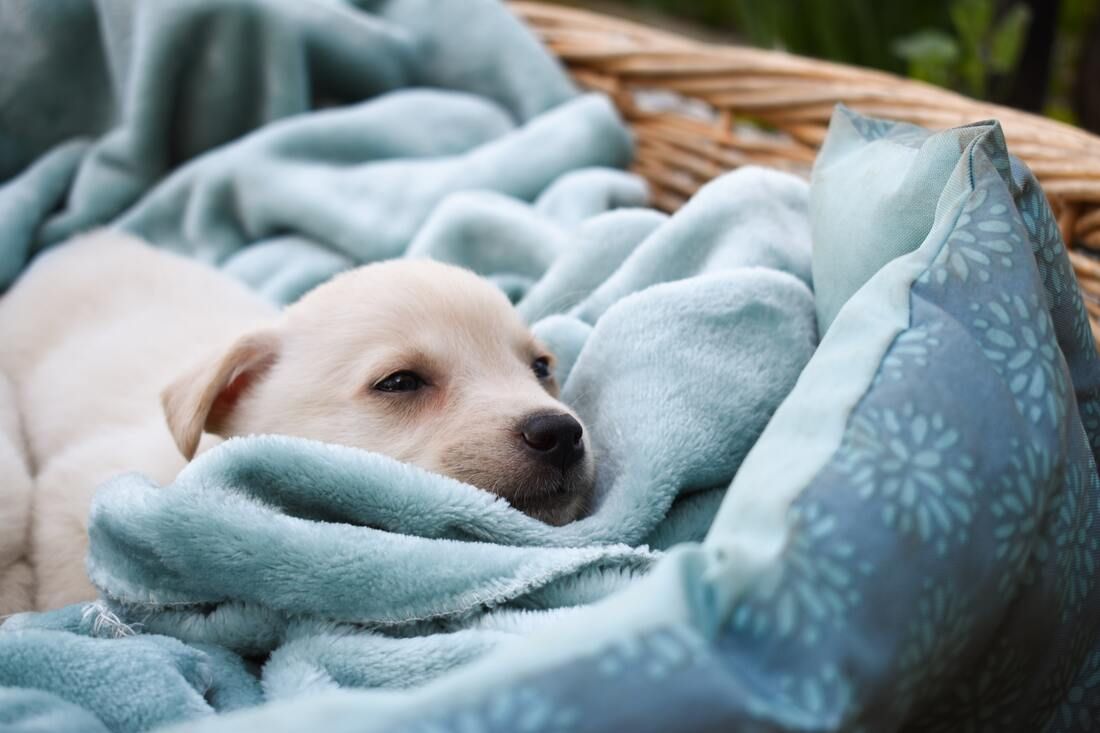 Photo by Zoritsa Valova on Unsplash Week three point five of the Fab Four. One of my foster pups is going to her new forever home, and I am torn between relief and sadness. I will miss her, but I am looking forward to only three little ones to look after. I keep thinking about Taffy’s next adventure. What her first few days will feel like to her? What will the first few days of a new family member be like for her people? Generally the first three days to one week is most difficult for all. Everyone is adjusting to a new schedule, and the dog is in a whole new world. I expect that Taffy won’t be quite herself due to normal stressors. Some dog shut down during this period and others get exceedingly excited and others somewhere in the middle, but bear in mind that there is stress. This is Taffy’s very first time away from her siblings and my home. Everything will be new. My advice to all of you brining a new pup home is to do everything carefully and thoughtfully as not to add to the stress of your new pup. In my recent post I discuss preparing for your pup which will help you be less stressed. I advise not doing to many new things during this time. The priority should be developing a consistent schedule so your new little one knows what to expect from their humans. Think of this as a decompression time. Keep everything simple and the same from day to day. At day 3-5, begin to introduce novel people, places and things. As with any introduction make sure to help your puppy have a positive experience by pairing it with treats or toy play they enjoy. If at any time they tell you they are not comfortable just remove them and come back to it later. Finally, use this time to have fun with your pup, and remember to reinforce all the wonderful things you puppy does. I found for abandoned puppies who have found their way into my home and heart. It is now day 15 of puppy mayhem😊. For all of you who currently have a puppy I salute you. In my last post I focused on what to have on hand before you bring your puppy home. Today, let’s talk puppy development and what that means for you and your new pup. Right now, my pups are approximately 8 weeks of age. The phase from 8-12 weeks is incredibly important time to introduce your puppy to their world. As this is a critical development period, and is your window to carefully, positively expose the pup to novel places, people, and other animals. The experiences they have now have a tremendous impact on the development of their brains and ultimately their behavior. So at this time I am gently exposing the pups experiences like short car rides, crates, leashes, collars new people, and also gentle handling of their bodies. The more novel experiences they get at this age the less issues they will have as adults. The key is to introduce them gently and not force them into a situation where they are scared or stressed this will have the opposite effect. Learn more I am on day seven of fostering four fabulous pups that were abandoned on a rural road. Yeah, I know, who would do that? However, on a lighter note they are doing great. They are running, playing, biting and doing all the fun puppy stuff. But, I digress.
While puppies are amazing and I am feeling much joy, their presence reminds me of all they things one needs to do to get pups settled in. So, for anyone thinking of adopting or fostering a puppy I have created this list to puppy prep, and save yourself some stress. Do these things before you bring your puppy home. This list is not exhaustive but gives you a road map. Set you pup up for success and manage them so they can do the right thing. Remember, puppies don’t know how to behave and want to explore everything with their mouths.
|
Debbie Lewis, MSI educate and support people as they deepen their understanding of their pet's behavior to create happy, healthy pet-people relationships. Topics
All
Archives
June 2024
|



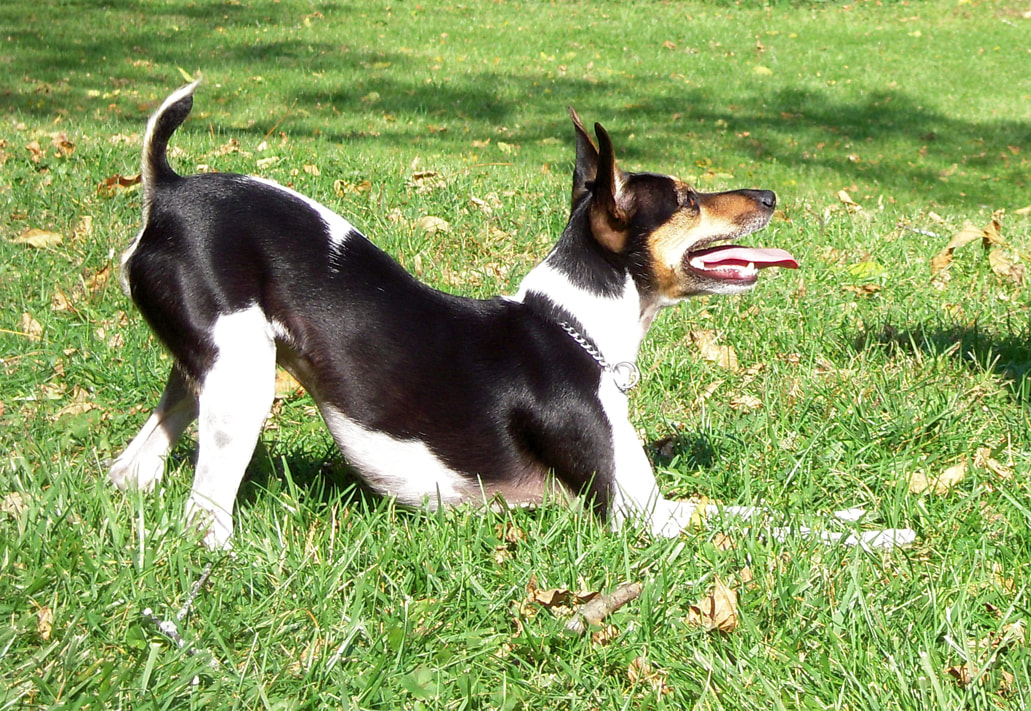
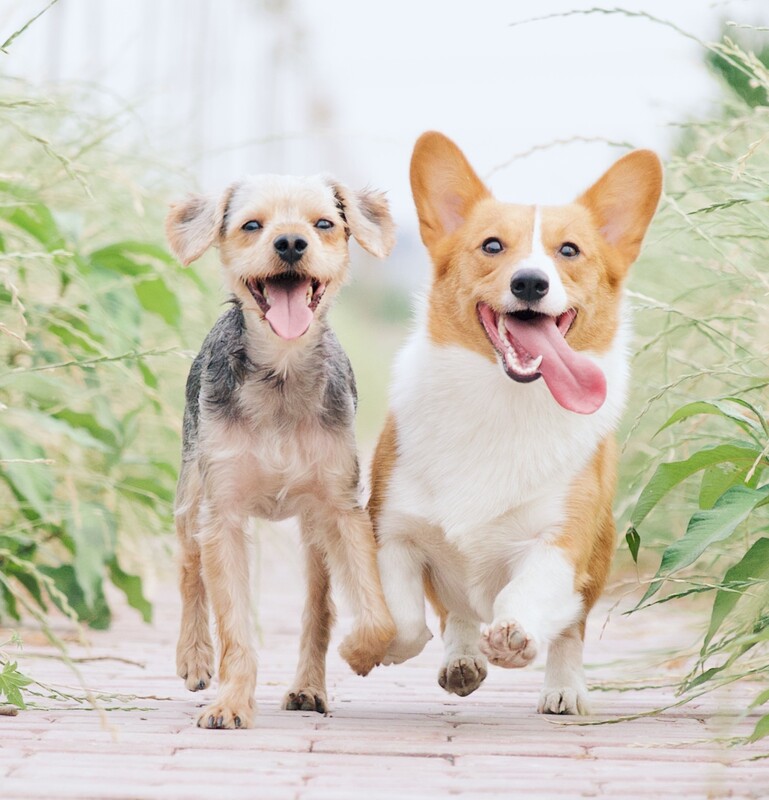
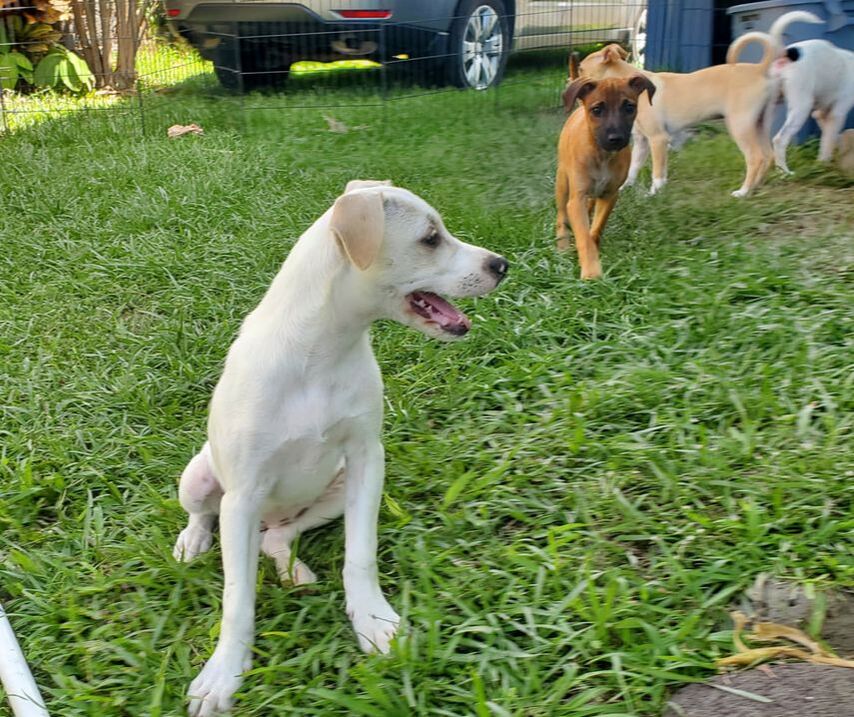
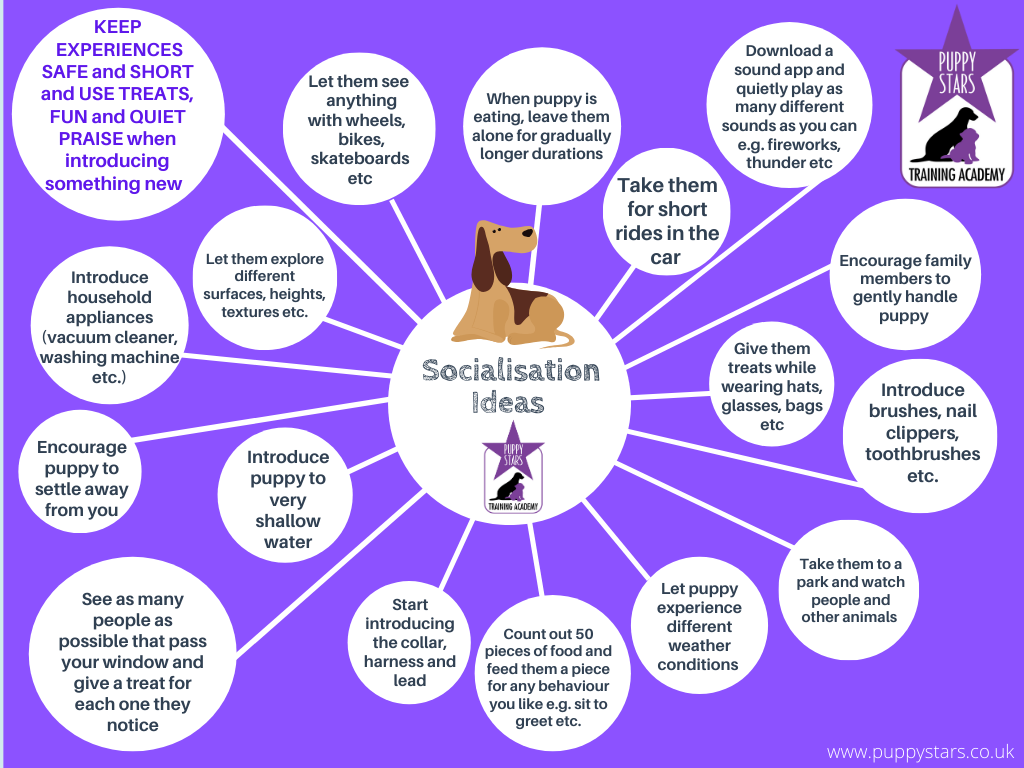
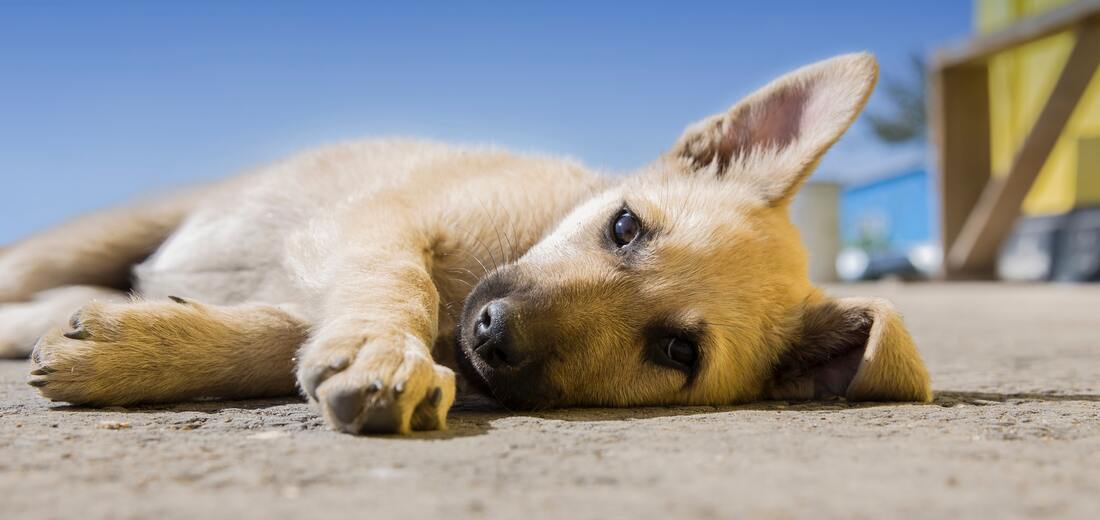
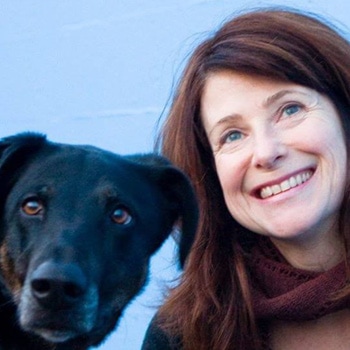
 RSS Feed
RSS Feed


